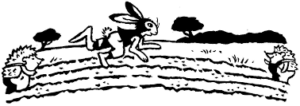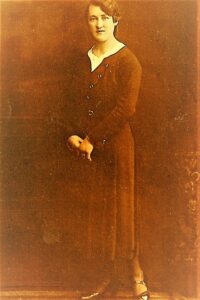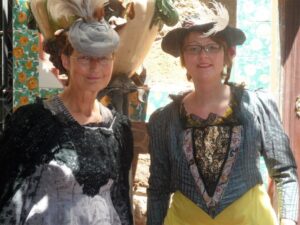Viktor E. Frankl, Über den Sinn des Lebens
I would like to discuss the first two speeches the Austrian neurologist, psychiatrist and philosopher Victor E. Frankl (1905-1997) held in March 1946 at the workers’ district Ottakring in Viena. Originally, they were published under the title … trotzdem ja zum Leben sagen. In the new edition, they were published under the title Über den Sinn des Lebens (Beltz Verlag). There is a third speech, in which Frankl describes his experience as a prisoner in the concentration camps of Dachau and Ausschwitz. By delivering his three speeches, Frankl wants to show that the human being can accept life despite misery and death (1st speech), suffering of physical or mental disease (2nd speech) and even extreme experience as a prisoner in a concentration camp (3rd speech). I bow to his wisdom and invite the reader to read the third chapter along with the previous ones himself. There are certainly other outstanding examples of people, such as Etty Hillesum, a young Jewish woman from the Netherlands, to mention only one more person, who dedicated their lives to others in the most intolerable, humiliating and inhuman circumstances, facing disgraceful living conditions and great suffering in a concentration camp, a life we simply cannot imagine.
In his first speech “Vom Sinn und Wert des Lebens”, Frankl describes the situation of people in the Post War era as “seelisch ausgebombt”. People’s soul has been bombed; it has been devasted. Why is that the case? In previous times, being active went together with being optimistic, while in the Post War era the circumstances for activism are pessimism. Progress is no longer possible and visible. We cannot trust blindly any longer in the times. Our Urvertrauen is gone. So what can we do if we do not want to drown in the swamps of nihilism?
We have to get back to humanity and focus on the single human being and its acts. Frankl falls back upon the example of the SS officer who got medicine for his prisoners in a concentration camp, while the oldest prisoner in the same camp ill-treated his fellow prisoners. Thus, it all depends on the single human being, the individual, its personal decisions and acts.
Frankl calls the individual human being “der bloße Mensch” (p.28). It is the naked human being, bare of money, power and honour, bare of life, good health and good luck. No more vanity, ambition or relations. The Ausschwitz prisoners seemed to be an anonymous mass, each one wearing his prisoner number. But when nothing but the mere existence remains, our true self appears and we are faced with a decision, the decision to act instead of talking, falling back upon the role models of others. According to an old myth, the existence of the morality in the world is guaranteed by only 36 people, role models of true justice. As soon as one of these just people is recognized, he will disappear and die. Thus, it is in the individual’s hands to be creative in action and to counteract in that way the negative propaganda of the Post war era and beyond.
So how can we give meaning to our existence in a life without pleasure, without everything that seems to be worthwhile? Frankl comments upon this question: „Lust an ist nichts, was dem Dasein Sinn zu geben vermöchte; also ist Lustlosigkeit auch nicht imstande (…), dem Leben Sinn zu nehmen.“ (p.34) Pleasure does not give sense to our life; hence the absence of pleasure does not take away the meaning from our life.
Ich schlief und träumte,
Das Leben wäre Freude.
Ich erwachte und sah,
Das Leben war Pflicht.
Ich arbeitete – und siehe:
die Pflicht war Freude.
This poem by Rabindranath Tagore, a Bengali poet, writer, playwright, composer, philosopher, social reformer and painter, says what life is really about: Pflicht, i.e. fulfill one’s duties. Bliss and happiness should never be the goal but only the result, the result of fulfilling your duties. So, do not ask what life can do for you but ask what life expects from you: “Was erwartet das Leben von mir?” (p.36) It goes without saying that the answer is to be found in the present time. The present holds the eternal new question of life for us. Das Hier und Jetzt.
What is not decisive is what kind of job a person has but how he or she fills out his or her radius of action. That means it is not important how big the radius of the individual person is. We cannot be replaced in our radius of life by anyone else. And it has to be said that our life does not exclusively gain its meaning by working. An unemployed person can give meaning to his existence by creating his free time…
What is important to know is that we cannot only fulfill what life expects from us by acting but also by loving. In our loving devotion to the beautiful, the magnificent and the good. Beauty in music, arts and nature gives meaning to our existence. The fact that a particular person exists in the world gives us a sense, too. Thus, we do not only give meaning to our life by working or acting in the wider sense but also by loving what and who is around us and finally even by suffering.
If there is a stroke of fate in our lives, we can create the situation. In this context, Goethe says that there is no situation that cannot be made more noble, either by proper action or by toleration. Either we change our destiny – if possible – or we accept it – if necessary. Bad luck makes us grow. This is what Frankl says. Fate belongs to our life and so does suffering. The impressionist poet Rainer Maria Rilke points out that our life’s achievement can exist both in working and in suffering. (p. 42-44)
But what are the rules of life? The rules of life do not expect us to gain a victory; they merely expect us not to give up the battle of life, not to surrender to defeatism. All our life we are faced with death. Death forces us to use our time in a meaningful, creative and compassionate way. It gives us responsibility for our life as our life is unique and irretrievable. If we let pass an hour of our life without using it meaningfully, that hour will not come back. It has been lost forever. On the contrary, you can say that an hour that has been gained by meaningful action cannot be affected by transience. Thus, we are under the pressure to act in the face of death. Death belongs to life as much as human suffering. Our radiation will remain when our self has already disappeared.
The human being is not perfect and everybody is not perfect in a different way. It is unique but its uniqueness only serves a purpose when it serves the human community as a whole. In this context, we can follow the saying from Hillel, one of the founders of the Talmud: “If I don’t do it, who else will do it? If I only do it for myself, who am I then? And if I don’t do it now, when shall I do it?” (p.53)
To conclude, life is a big task. The more difficult it gets, the more sense it may have. Some people are looking for difficulties on purpose, such as the climber on the mountain, who tries out a more difficult variant instead of going the easy way. “Das Leben ist nicht etwas – es ist die Gelegenheit zu etwas!“ (p.54) Life is not something. It is the opportunity to do something. These words by Hebbel want us to be creative with our time by seizing the opportunities life has in store for us. We gain sense by acting, loving and suffering and acting does not only imply working but also creating, both our free time and our life as a whole.
Living and suffering… Viktor E. Frankl says in his second speech, “From Sinn und Wert des Lebens”, that life makes sense and so does suffering. Being ill is part of suffering but it is not the same. A human being can suffer without being ill and he can be ill without suffering. An illness does not mean that there is less sense in life; on the contrary, it can give meaning to human existence. It can mean that we gain something instead of losing something. Rilke wishes every human being to die “his death” in order to give meaning not only to life but also to death. Fulfilling the sense of one’s existence can be found, both in a meaningful life and in a meaningful death… Thus, illness and death should not to be considered as a loss but as rather as a gift or at least as an opportunity. As a consequence, the sense we gain from being ill and dying cannot be limited by not being successful in the world. It is an inner success, which is far more important than all the outward success we can gain in the world, all honour and fame. In death, we reach the completion of our life, which can be seen in both novellas, Der Tod des Kleinbürgers by Werfel and Der Tod des Iwan Iljitsch by Tolstoi. It is only in the face of death that the protagonists give meaning to their previously meaningless life. Hence, a doomed life is far from being meaningless.
Who is a good doctor? A good doctor is a human doctor; it is a person who discovers humanity in the patient, a person who evokes humanity in the patient. The patient is not considered to be an object; his dignity is respected by the good doctor. The patient is considered to be in first place a human being who is very human despite his illness. The good doctor has to rescue and to help where it is possible; he has to nurse the patient where cure is no longer possible.
But does it make sense to look after patients who are no longer useful for the human society? Is this care not unproductive? No, no, no! It is not legitimate to use utility for the community as a means of justification for human existence. It is true that our achievement for mankind by performing our daily chores is relevant; both our work and the creation of our free time makes us unique. But there is another way to be unique and give meaning to our life; it is a passive way without any achievement, without any acting by the individual. It is the way of being loved, das Geliebtwerden. The individual does not have to strive or to struggle for that; it does not have to fight for it. It is being loved. It is something that falls into its lap. A human being is special and therefore he or she is being loved. It is a gift, it is Gnade (mercy). This is very comforting, a very comforting thought as it takes away all the pressure from us. Productive utility is no longer considered to be the yardstick of life. In the end, there is only love that matters. To love and being loved.
Suffering makes sense and there is an ultimate sense in death; no illness, not even an incurable mental disease gives us the right to deny a human being his right to live by qualifying his life as worthless and unproductive.
But does everything that happens in the world makes sense? Viktor E. Frankl says that we can plead for both, for a world that does not make any sense and for a world that is very meaningful. Both are logical ways of thought. We have to make up our mind which option to choose. What is true is that the person who decides to believe in an ultimate sense of our existence will experience a positive impact: His optimistic believe will result in creation. His optimism will help him to create his life, to be the creator of his existence. We have to value life (“Hochschätzung des Lebens”; p.122) every day and be grateful. I would like to finish with a quote from the first speech:
Entweder wir ändern das Schicksal – sofern dies möglich ist – , oder aber wir nehmen es willig auf uns – sofern dies nötig ist. (p.123)
Frankl wants us to change our destiny if possible and to accept it if necessary. I wish everybody a lot of strength to face the up and downs of life. May you live in peace and spared from a severe stroke of fate! May you be blessed forever! May you live. May you work. May you create. May you love.

 Der Igel
Der Igel 
 Iris saß in ihrem Garten. Nein, sie saß nicht in ihrem Garten. Sie arbeitete in ihrem Garten. Sie beschnitt ihre Eiben. Bald sollte wieder ein Schiedsgericht mit dem Nachbarn stattfinden, um Grenzstreitigkeiten beizulegen. Bloß nicht noch mehr Ärger! Ihre Freundin wollte ihre Ruhe haben. Meistens zog sich Iris sowieso in ihr Haus zurück, das einmal ihren verstorbenen Eltern gehört hatte. Im Garten war sie nur, um sich um ihre geliebten Pflanzen zu kümmern, die sie stets liebevoll hegte und pflegte und manchmal einem Zitronenfalter hinterherzusehen. Im Herbst pflückte sie die Birnen an ihrem Birnbaum und verteilte sie reichhaltig an ihre Freunde aus dem Dorf. Sie erinnerte Dori, ihre langjährige Freundin, an eine der prächtigen Rosen aus dem Park Cervantes in Barcelona, den sie einmal gemeinsam besucht hatten.
Iris saß in ihrem Garten. Nein, sie saß nicht in ihrem Garten. Sie arbeitete in ihrem Garten. Sie beschnitt ihre Eiben. Bald sollte wieder ein Schiedsgericht mit dem Nachbarn stattfinden, um Grenzstreitigkeiten beizulegen. Bloß nicht noch mehr Ärger! Ihre Freundin wollte ihre Ruhe haben. Meistens zog sich Iris sowieso in ihr Haus zurück, das einmal ihren verstorbenen Eltern gehört hatte. Im Garten war sie nur, um sich um ihre geliebten Pflanzen zu kümmern, die sie stets liebevoll hegte und pflegte und manchmal einem Zitronenfalter hinterherzusehen. Im Herbst pflückte sie die Birnen an ihrem Birnbaum und verteilte sie reichhaltig an ihre Freunde aus dem Dorf. Sie erinnerte Dori, ihre langjährige Freundin, an eine der prächtigen Rosen aus dem Park Cervantes in Barcelona, den sie einmal gemeinsam besucht hatten.

 – Omi –
– Omi –
